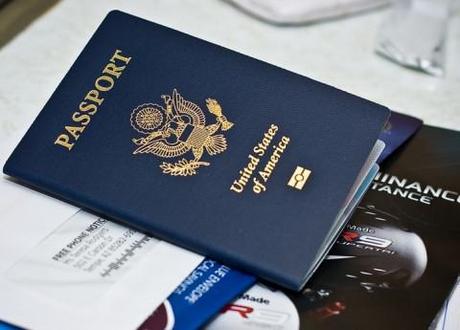 Around 30 percent of Americans now hold a passport, up from just 3 percent in the 1980s.
Around 30 percent of Americans now hold a passport, up from just 3 percent in the 1980s.
Not long ago, I went to an author talk at the wonderful Foyle’s in Charing Cross, featuring an American author I quite like (and still do). At one point, however, the author noted that in her next book, her characters will be spending a lot of time in romantic European locations – her conscious effort to encourage her American readers to travel more.
“Because, you know, we have had a president who didn’t have a passport,” she joked, to appreciative chuckling from the audience. Unsurprising, given the audience – Brits and a few Americans who at some point made the decision to move abroad and naturally feel superior to those who haven’t.
It was, oddly enough, the second time I’d been to an author talk at Foyle’s where an American writer has brought up the passport issue. And it’s a topic that’s come up often over the last three and a half years that I’ve lived here. If it’s a British person speaking, it’s meant to make fun of or embarrass us insular Americans. If it’s an American speaking, it’s meant to draw a line between themselves and the untraveled masses of their mother country: I, unlike my obese compatriots back home, inhaling McDonald’s French fries and waving their handguns at the TV, am cultured. I travel, I know the wider world, I’m no ignorant American. There’s some apology in it, but it’s also about snobbery.
And it’s kind of bullshit.
Putting aside the fact that Americans holding passports is actually at an all-time high, at around 30 percent of the population, it’s not surprising that so many Americans don’t have a passport – there is more than enough America to occupy Americans.
I recall a conversation with one British girl who thought that San Francisco was only about a 45-minutes drive from Boston. I thought I hadn’t heard properly, so I asked her to repeat it. “Yeah, San Francisco? That’s not too far from Boston, right?”
Not exactly. I won’t tar the entire nation with the ignorance of one British teenager (who was, aside from her lack of geographical knowledge, very sweet), but the interchange was an extreme version of a conversation I’d had with other, more well-informed Britons. The fact is, most people over here don’t really have an understanding of just how massive and therefore profoundly varied America is.
So let’s put it into context. At more than twice the size of the European Union, America is the third largest country in the world. The United Kingdon is the 80th. The whole of the UK is slightly smaller than Oregon: That’s right – this country, from the Shetland Islands to the Yorkshire Dales to Brighton Beach, can fit into one American state. No wonder 80 percent of the British population hold passports, if you can drive from one side of the island to the other in less time than it takes to watch the first season of 24.
With that geographic enormity also comes vast differences in culture – what people in Savannah, Georgia do, what they eat, how they live is necessarily different from people in Seattle, Washington. Where in Dallas, Texas, signs in both Spanish and English are more than commonplace, in Boston, they’re still an anomaly, and in Fairfax, Virginia, it’s likely to be Vietnamese you’re reading. Politically speaking, America is literally all over the map, which is why a voter from Alabama might not have much in common with a voter from Connecticut.
Then there’s the fact that, up until 2007, one could visit America’s two closest neighbours, Mexico and Canada, as well as various Caribbean islands, without a passport. And the fact that traveling overseas, in either direction, can be prohibitively expensive. And the fact that because America is home to so many people from around the world, one is able to experience, though in a limited sense, different global cultures without even leaving your home town.
This is not to say that Americans are not overly insular; they certainly can be woefully unaware about what’s happening in the wider world. But when your country is as big as America is, you’ve got a lot of room to stretch out. That also goes some way in explaining why Americans are less likely to consume international news – just trying to get a handle on what’s happening in your own country is hard enough.
So, my fellow Americans who travel or live abroad looking to feel superior, and my British friends looking to score points, give it a rest.

